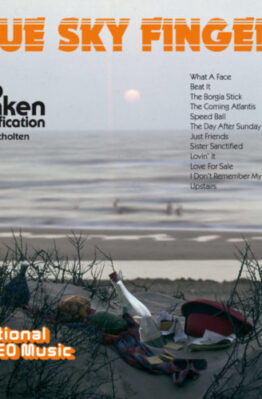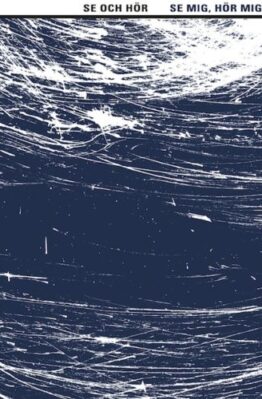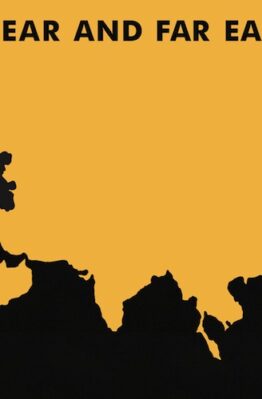Description
Cat#:
Format: LP
CAT#:
∫∫09LP-CR(背景色:クリーム) BARCODE: 4560312319703 / LTD 125 copies
∫∫09LP-BR(背景色:こげ茶) BARCODE: 4560312319710 / LTD 125 copies
ARTIST: Harold McKinney
TITLE: Voices & Rhythms of the Creative Profile
Originally released as: Tribe PRSD 2233 (1974, US)
・AscENsioNàLeは、EATINGSTANDING社/Enzo Zangaglia氏による復刻プロジェクトです。
Lineup:
Harold McKinney (piano vocals)
Marcus Belgrave (trumpet)
Wendell Harrison (reeds)
Darryl Dybka (Moog)
Ed Pickins (bass)
Ron Jackson (drums)
Billy Turner (percussion)
Charles Miles (congas)
Gwen McKinney (vocals)
Carol Taylor, Clarence McKinney, Ed Gooch, Eileen Cohill, Faye Blakely, Jenine Jackson, Sylvia Turner (chorus)
Tracks
A1. Ode To Africa
A2. Heavenese
A3. Out of the Blues
B1. In the Moog
B2. Corner Stone
B3. Freedom Jazz Dance
B4. Dolphin Dance
Notes
Harold McKinney was one of the leading musicians in the Detroit jazz scene for over sixty years. As a child, he first took classical lessons with his mother Bessie Walon McKinney, an organist, but it wasn’t long before he fell under the influence of Charlie Parker’s music and he turned his attention to jazz. After graduating from Northwestern High School, McKinney attended Morehouse College in Atlanta and, after returning to Detroit, he studied briefly at Wayne State University before going to Germany to undertake military service. After returning to the United States he worked with a wide range of jazz folk including Roy Brooks, John Coltrane, Kenny Burrell and Wes Montgomery. But it was with his association with Marcus Belgrave, Wendell Harrison and Phil Ranelin that McKinney is most fondly remembered, especially by the jazz community of Detroit. It was as part of the Tribe Artists’ Association that McKinney found a new voice at a critical time. A voice that resulted in one of the prime releases on the Tribe record label, one of the leading black label collectives of the 1970s, along with Strata East and Black Jazz.
Tribe was not only a record label, it also published a magazine that focused on music, politics and topical cultural issues relevant to the black community. Tribe’s musical span covered a wide range of styles: soul, bebop, hard- and post-bop, modal, funk, groove jazz, vocals, avant-garde improvisations, and so on. Amongst this diverse palette was Harold McKinney’s debut album as leader ‘Voices and Rhythms of the Creative Profile’ released in 1974.
According to McKinney, the album “was my first recorded music publication. Produced in the early 1970s, it was designed to introduce some of my various skills to the world music market and to showcase some of varieties of instrumentation and singers available in the Detroit area, including members of my own family.”
Focusing on some of the tracks on the album, McKinney explained the ideas that inspired several of his compositions.
“‘In the Moog’ acknowledges my growing awareness of the musical possibilities inherent in the use of electronic instruments and technology which was finding expression in the music of major recording artists like Miles Davis. ‘Freedom Jazz Dance’ is a piece written by Eddie Harris, and it inspired me to write lyrics that spoke to the spirit of the late 1960s and early 1970s. The late jazz vocalist Eddie Jefferson incorporated my lyrics in his hit recording of the composition in an album done for Columbia Records just before his death.
‘Ode to Africa’ was a composition I wrote during the early 1970s, a time when I, along with other African Americans, became conscious of our African heritage. The song celebrated a new sense of worth and dignity acquired when I became aware of how significant my African American and African ancestors were in the history of the development of world civilisation. It also urges others to become aware of that heritage.”
Considered one of the most important mentors of jazz in Detroit, McKinney worked as a music educator and held classes and workshops at the Detroit Serengeti Ballroom. He also created jazz programs at Oakland University and Wayne State University, delivered his programs in public schools and various festivals, taught at the Metro Arts Center and numerous summer youth programs, and produced a weekly jazz workshop called Detroit Jazz Heritage Performance Lab (DJHPL). In 1994 McKinney and his band The Jazz Masters went on a tour through Africa and the Middle East.
Sadly, in May 2001, McKinney suffered a stroke, and died the following month.
![Import LP - ∫∫09 - Voices & Rhythms of the Creative Profile - Harold McKinney [Sold Out]](https://alborejazz.com/wordpress/wp-content/uploads/2018/03/ss09LP1-e1570935456646.jpg)
![Import LP - ∫∫09 - Voices & Rhythms of the Creative Profile - Harold McKinney [Sold Out] - Image 2](https://alborejazz.com/wordpress/wp-content/uploads/2018/03/ss09LP2-e1570935448288.jpg)



